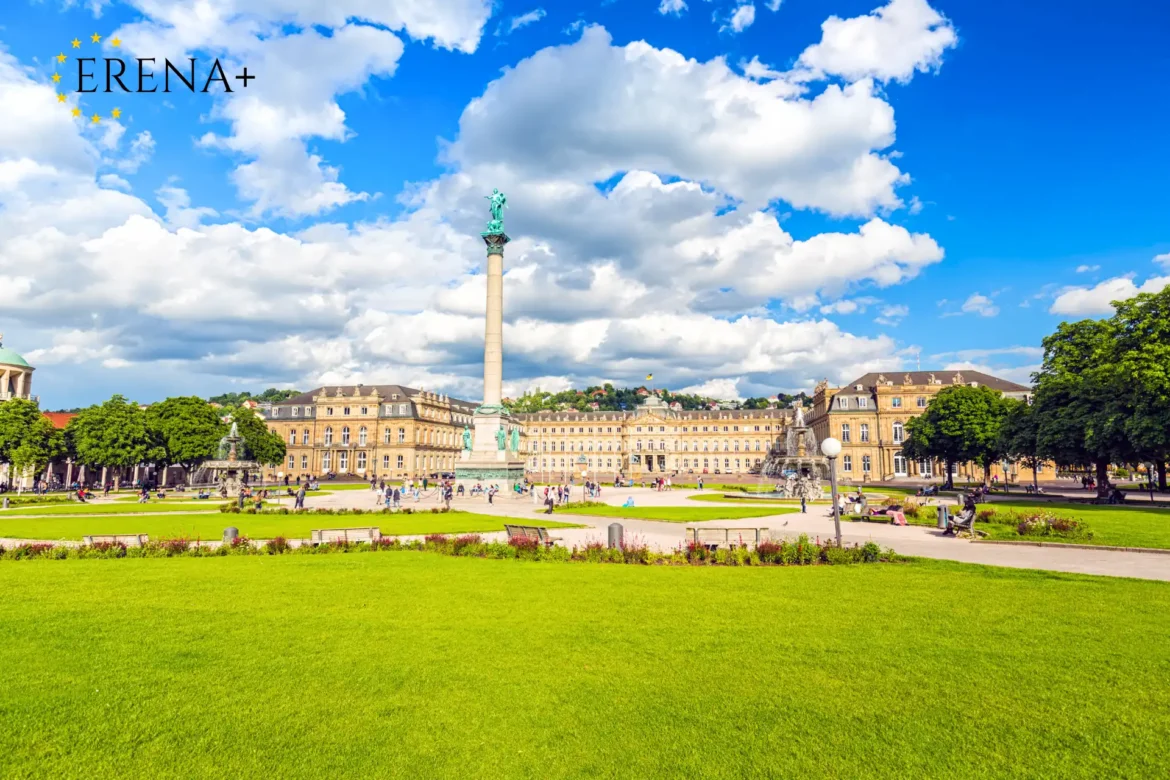Stuttgart, the capital of Baden-Württemberg, is at the forefront of Germany’s real estate boom. Known for its automotive industry, technological advancements, and vibrant economy, Stuttgart’s real estate market is thriving. This article explores the key trends, challenges, and opportunities shaping the city’s property landscape.
1. Stuttgart’s Strong Economic Foundation Drives Real Estate Demand
Stuttgart’s economy is one of the strongest in Germany, thanks to its industrial base, particularly in automotive giants like Mercedes-Benz and Porsche. With growing industries in technology, software development, and AI, the city has become a global destination for talent and investment. The robust economy has led to consistent demand for both residential and commercial properties, driving up property values and rental prices.
2. Population Growth and Urbanization Fuel Housing Demand
Stuttgart’s population has been steadily increasing, spurred by job opportunities and the city’s high quality of life. As more people move to Stuttgart for work, the demand for housing continues to rise. However, the city’s geographic constraints limit expansion, leading to competition for available land. As a result, both residential and commercial property prices are on the rise, with demand spreading to nearby suburban areas.
3. Limited Housing Supply and Rising Prices
One of Stuttgart’s key real estate challenges is its limited land supply. The city’s topography—surrounded by hills and the Neckar River—restricts its ability to expand outward, pushing up land prices. As a result, property prices have surged, with residential prices now exceeding €4,500 per square meter in some areas. Suburban districts like Filderstadt and Leinfelden-Echterdingen are becoming more popular as people seek more affordable housing options.
4. Gentrification and Urban Revitalization
Several neighborhoods in Stuttgart, including West and North, have undergone significant gentrification. Once industrial areas are being transformed into modern residential and commercial spaces, attracting young professionals and families. These developments, often combined with mixed-use facilities, are making these areas more desirable. Investors can benefit from these gentrified districts, where property values are set to rise.
5. Sustainability and Eco-Friendly Development
Sustainability is a top priority in Stuttgart’s real estate market. Developers are increasingly incorporating green technologies like solar panels, energy-efficient systems, and sustainable materials. The city’s commitment to reducing its carbon footprint aligns with growing consumer demand for energy-efficient, eco-friendly buildings. Investing in sustainable properties not only meets market demand but also offers long-term financial benefits.
6. High Demand in the Rental Market
The rental market in Stuttgart is highly competitive, with limited availability of affordable rental properties. As property prices rise, many people are opting to rent rather than buy, particularly in central areas with easy access to public transportation, businesses, and cultural attractions. This has led to rising rents, which in turn makes rental properties a solid investment opportunity.
7. Commercial Real Estate Growth in Stuttgart
Stuttgart’s commercial real estate sector is expanding, driven by the city’s role as a business and innovation hub. Demand for office spaces remains high, particularly in well-connected areas. Although the remote work trend has influenced demand, high-quality office spaces remain essential for businesses, especially in sectors like automotive, technology, and engineering. Investors can take advantage of opportunities in both office and retail spaces, particularly in central and emerging districts.
8. Investment Opportunities in Stuttgart’s Real Estate Market
For investors, Stuttgart offers a wide range of opportunities:
- Residential Properties: With a growing population and limited housing supply, residential properties—especially in up-and-coming neighborhoods—offer strong investment potential.
- Mixed-Use Developments: Projects that combine residential, office, and retail spaces are in high demand, catering to the increasing desire for integrated living and working spaces.
- Sustainable Buildings: Investing in eco-friendly buildings meets growing market demand and provides long-term value as the demand for energy-efficient homes and offices increases.
9. Future Outlook: Challenges and Growth Opportunities
Stuttgart’s real estate market is expected to continue growing, driven by the city’s strong economy and increasing demand for housing. However, challenges such as limited land supply, rising prices, and affordability concerns remain. Developers who can address these challenges through innovative solutions, sustainable designs, and strategic investments will be well-positioned for success.
Conclusion
Stuttgart’s real estate market is booming, offering abundant opportunities for investors, homebuyers, and developers. However, navigating this market requires a solid understanding of the city’s economic drivers, emerging trends, and challenges. By focusing on sustainable development, exploring mixed-use projects, and identifying high-demand neighborhoods, investors can capitalize on Stuttgart’s continued growth.

